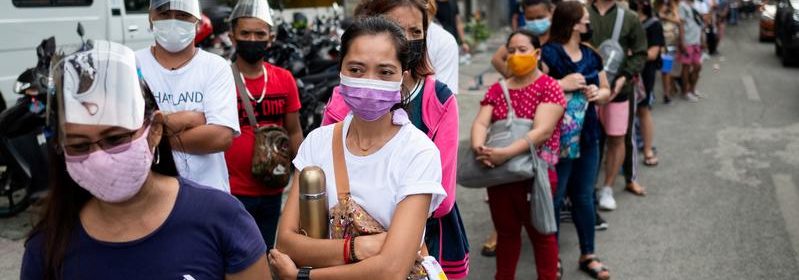What you need to know about the coronavirus right now

(Reuters) – Here’s what you need to know about the coronavirus right now:
Sydney suffers worst pandemic day
Sydney reported its worst day of the COVID-19 pandemic on Thursday with five deaths and a record rise in locally acquired infections during a weeks-long hard lockdown, as the city struggles to contain the highly contagious Delta variant of the coronavirus. Four of the five people who died were unvaccinated while one had one dose, New South Wales state health authorities said, as they implored residents to get inoculated.
New South Wales Premier Gladys Berejiklian has linked the vaccination rate to easing lockdown restrictions on Aug. 28, setting a target of 6 million shots by the end of the month that would cover half the state’s adult population. But the growing list of new venues where COVID-19-positive people have visited while infectious is tempering any optimism. About one-fifth of cases reported in New South Wales on Thursday were active in the community, in line with the trend over the last few days.
U.S. developing plan to require foreign visitors to be vaccinated
The Biden administration is developing a plan to require nearly all foreign visitors to the United States to be fully vaccinated against COVID-19 as part of eventually lifting travel restrictions that bar much of the world from entering, a White House official told Reuters on Wednesday.
The White House has held discussions with airlines and others about how it would implement a policy of requiring vaccines for foreign visitors. The administration must also answer other questions including what proof it would accept of vaccination and if the United States would accept vaccines that some countries are using but which have not been authorized by U.S. regulators.
Japan proposes expanding emergency curbs as cases surge
Japan has proposed expanding emergency restrictions to eight more prefectures to fight a surge in COVID-19 cases, a cabinet minister said, as worries grow about strains on the medical system in Olympics host Tokyo and elsewhere. Six prefectures including Tokyo are already under full states of emergency to last until Aug. 31 while another five are under less strict directives.
Officials have warned that coronavirus infections were surging at an unprecedented pace as new cases hit record highs in Tokyo, overshadowing the Olympics and adding to doubts over the government’s handling of the pandemic.
COVID-19 vaccines may protect patients’ lungs
In vaccinated patients with “breakthrough” COVID-19 infections, the disease may not affect the lungs as much as in unvaccinated patients, new data from India suggest. Doctors there studied 205 adults with COVID-19, more than half under the age of 50. Among those studied, 14% were fully vaccinated, 15% were partially vaccinated, and the rest were unvaccinated.
Researchers scored each of the five lobes of each lung on a scale ranging from 0 for no virus involvement, to 5, which meant more than 75% of the lobe was affected. Out of a possible 25, the average lung CT severity score was 0 in fully vaccinated patients, 4 in partially vaccinated patients, and 11 in the unvaccinated group, according to a report posted on medRxiv on Tuesday ahead of peer review.
Study coauthor Dr. Jaimin Trivedi of the University of Louisville in Kentucky said the findings underscored “the fact that vaccination reduces the severity of the COVID-19 disease even though it may not prevent the infection in some patients”.
No vaccine boosters in favour of unvaccinated, WHO says
The World Health Organization is calling for a halt on COVID-19 vaccine boosters until at least the end of September, its head Tedros Adhanom Ghebreyesus said on Wednesday, as the gap between vaccinations in wealthy and poor countries widens.
High-income countries administered about 50 doses for every 100 people in May, according to the WHO. Low-income countries have only been able to administer 1.5 doses for every 100 people due to lack of supply.
Source: Read Full Article